Listen to the audio version of this story. For more, subscribe to our podcast.
It was 1985, and Kenneth Weisner didn’t want to shoot a new commercial for his auto salvage business. He was perfectly happy with the 30-second spot for Victory Auto Wreckers that had been running on Chicago’s WGN for the last four years. But the master tape had gone missing, and the only copy left was rapidly deteriorating. The station was going to take the ad off the air if the business didn’t replace the tape.
A production staffer at WGN directed a new commercial, set on a suburban side street and starring one of Victory’s tow truck drivers, a lanky young man with a shaggy blond mane. He opens the door to his car and it falls off. He throws up his hands in frustration. Cue voiceover:
That old car is worth money! Call eight-six-zero-two-thousand for a quote. Victory will buy no matter what condition your car is in. Victory will tow it away free, and you’ll get cash on the spot.
The commercial celebrates its 30th anniversary this May, and aside from minor changes in the graphics and voiceover, it’s the same spot that debuted in 1985. The ad has become a quirky piece of Chicago television history that locals of a certain generation can quote from memory. It outlived Kenneth Weisner, who died in 2007, and continued airing as Kenneth’s older son, Kyle, took over the business.
“He said there was no need to change the commercial because our message hasn’t changed,” Kyle says of his father.
But change—and an all-new commercial— is finally coming to Victory, which was founded in 1945 by two World War II veterans and is located in Bensenville, Ill., just beyond the southern edge of Chicago’s O’Hare International Airport. A place like Victory, where broken-down cars are stripped and flattened, seems like an unlikely candidate for a makeover. But the business has invested millions of dollars into upgrading its facilities and reshaping its image from a dirty junkyard to a modern recycling center, complete with its own mobile app.
“The commercial shows a shot of the yard, and you see it almost looks like it was filmed on a rainy day,” Kyle says. “It’s so muddy and disgusting, and everything is haphazard and all over the place. Now it’s paved. It’s beautiful. You can come in here after work with your suit on or your loafers or whatever, and not have to worry about getting dirty. …It’s something that we’ve never had before. We’ve entered the 21st century.”
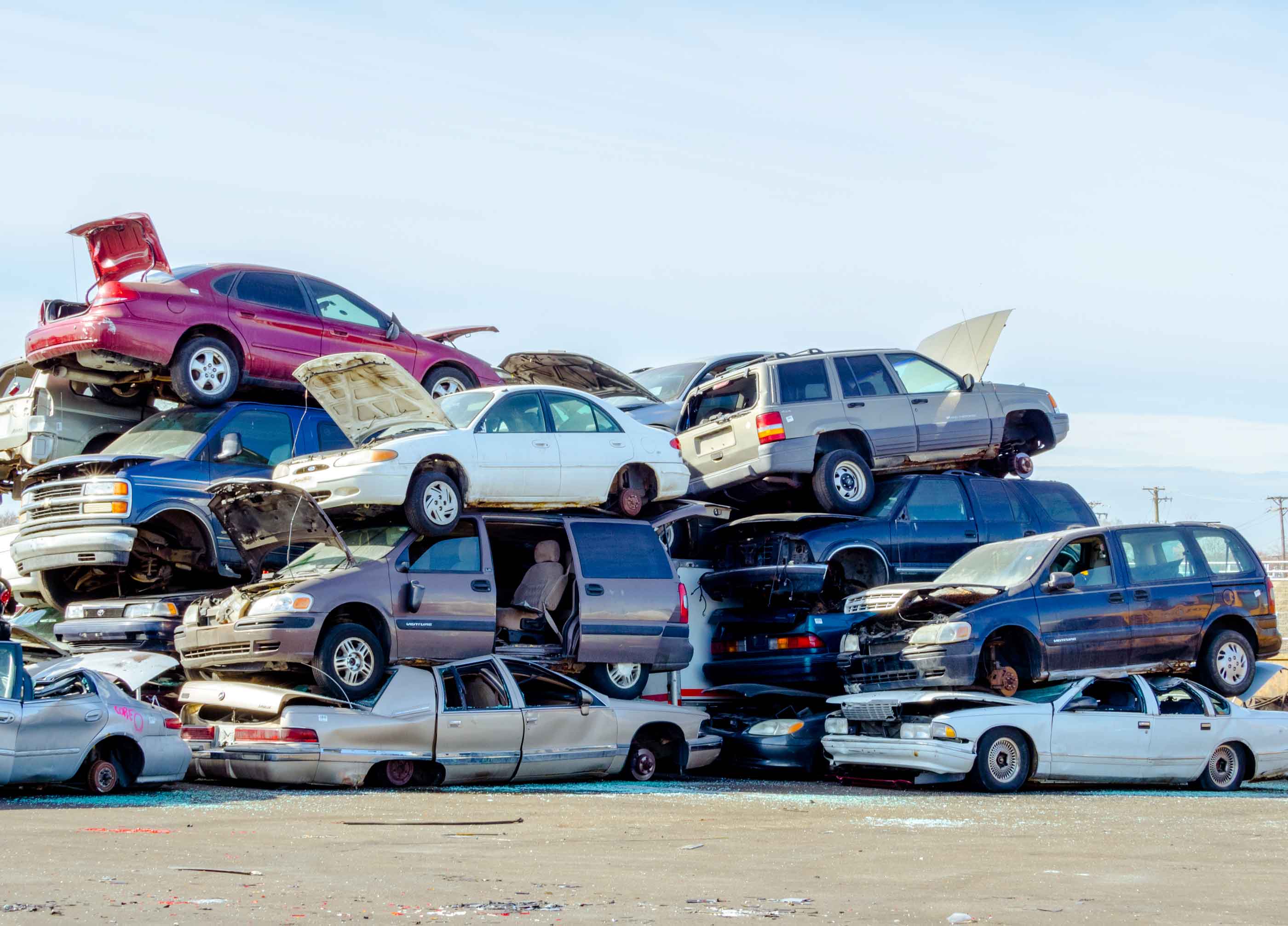
Victory hired a company in Chicago’s northern suburbs to make the new commercial and held a contest where people could submit versions of their own. The prize-winning ad will be aired on local television until the professional spot is ready in May.
“When I got the call that they wanted us to produce a commercial…I couldn’t believe it because it’s such a childhood memory for me,” says Jeff Goldstein, the owner and creative director of XPress Video Productions, which in March saw one of its videos—a bar mitzvah invitation where the teenage guest of honor parodies pop hits like Lorde’s “Royals” and Robin Thicke’s “Blurred Lines”—rack up nearly 2 million views on YouTube.
Everyone knows it as a junkyard, and that’s not what we do. We’re actually helping to clean up America.
The new Victory commercial will also be posted online, in hopes that it becomes as well-known as the original, which went viral in its own way and in a very different age. If the ad is successful, it might convince people that this 69-year-old junkyard has retooled itself for the modern era.
“It’s hard having an automotive-recycling facility because… everyone knows it as a junkyard, and that’s not what we do,” Kyle says. “We’re actually helping to clean up America. …We take stuff that would normally be sitting on the side of the road, leaking for eternity, and we recycle it in an environmentally friendly manner. The whole industry is trying to change people’s perceptions.”
Crush it!
Customers might not give their old car a second thought after they collect $150 to $400 and watch Victory’s tow truck drive away, but an entire global industry revolves around breaking down the big, unwieldy stuff of modern living—like automobiles. Each month, around 1,000 cars start their journey to the afterlife at Victory’s nine-acre facility. Employees first remove the batteries and any garbage, then put the cars on draining racks and drill holes to siphon out fluids like engine oil, antifreeze and gas. This is the first step in a multistage process that connects Victory to an intricate network of businesses that recycle or dispose of industrial materials.
“It has to go somewhere, and most of this stuff goes right back into the economy,” Kyle says. “The crushed cars that go to the shredder—that metal gets put back in the economy in the form of beams, or made into washers or dryers or new cars. So what was once old is new again.”
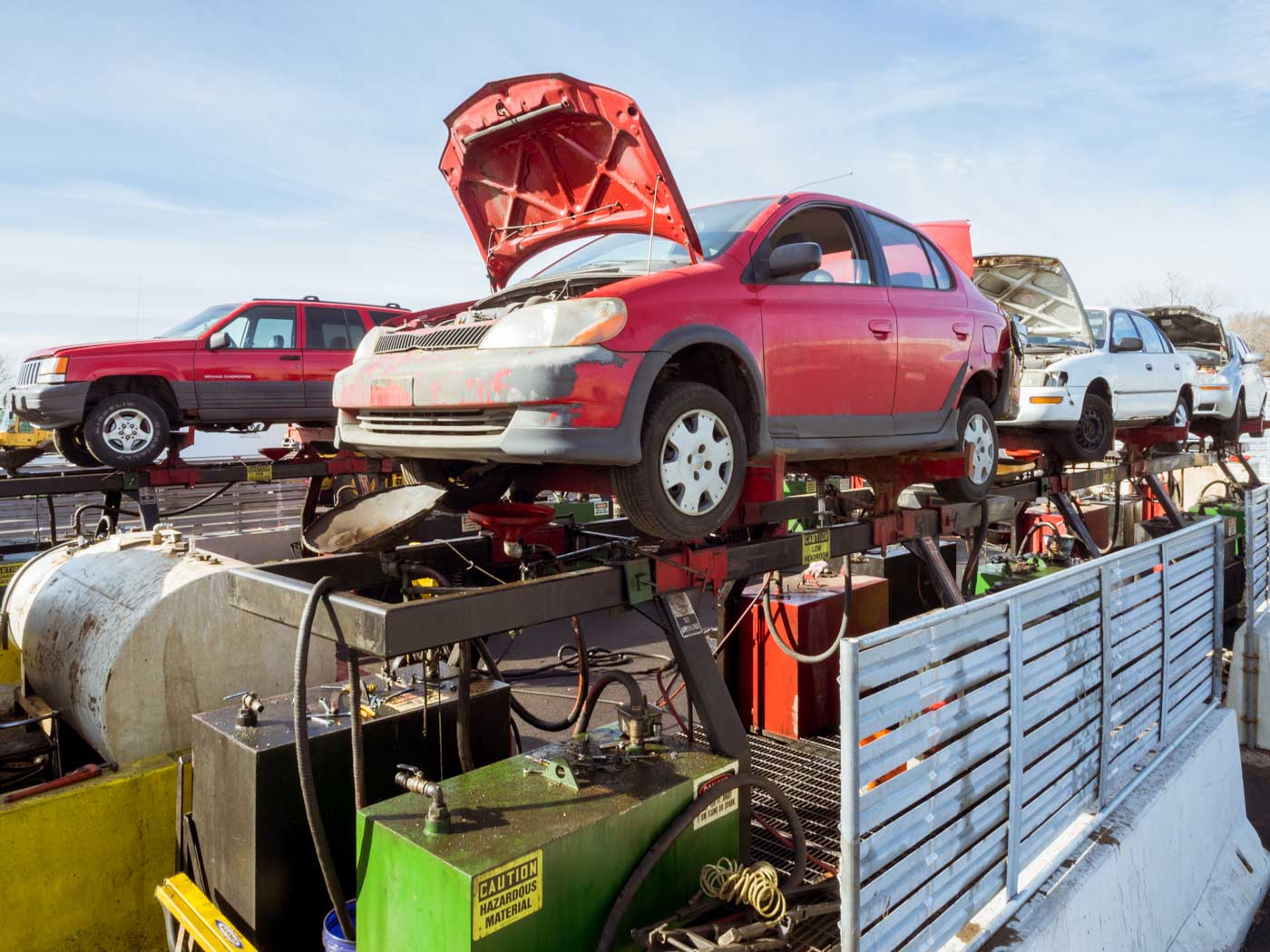
Over nearly seven decades, Victory has learned how to extract value from each step of dismantling the car. It filters leftover gas for use in tow trucks and employees’ personal vehicles; Kyle hasn’t been to a filling station in years. Oil from the autos fuels two heaters that warm up Victory’s building, and recycled antifreeze is sold at the counter for $5 a gallon. Specialized companies purchase the materials, like Freon, that Victory doesn’t process on-site.
After draining the fluids, Victory puts cars in the yard on steel rims to sell their parts. Everything from the windshield-wiper blades to the fender is fair game, but customers have to bring their own tools and remove the components themselves. Kevin Brown, an editor at XPress Video Productions who is working on Victory’s new commercial, was once one of those customers, looking for parts to fix up his friends’ cars.
“There were a lot of parts [where] you couldn’t even put a date on how old they were,” Brown says. “The mud had pretty much swallowed them up into the earth—old rims, old parts from cars being moved around and everything. It’s a whole lot nicer now.”
Thanks to recent upgrades, customers no longer have to stand in the mud when trying to peer under a car. Instead, vehicles are neatly arranged in elevated rows. Using Victory’s mobile app, customers can check the latest inventory and get notifications when specific makes and models are added. Kyle plans to install digital kiosks at the front counter so visitors can look up the availability and location of parts, like an online card catalog.
Victory refreshes its selection of cars daily. The stripped-down ones get crushed in an apparatus that resembles a stage with a giant anvil hanging over it. A Volvo wheel-loader, outfitted with steel tines like an oversize carving fork, scoops up a car and places it in the crusher. As the anvil descends, the loader inches forward and uses its tines to hold the car’s doors in place so they collapse inward.
The crushing process takes just 60 seconds, but it’s a noisy and action-filled minute. The body of the car begins to crumple, then the windows and windshields give way. Glass shatters and spews outward, creating a green and blue mosaic on the asphalt. The loader places another car on top of the flattened carcass, and the process repeats until a compressed stack of three cars, called a bundle, is created. Four bundles make a load, which Victory sells to metal recyclers that further process the scrap by shredding it into fist-size pieces, separating ferrous from nonferrous metals, and remelting the iron and steel.
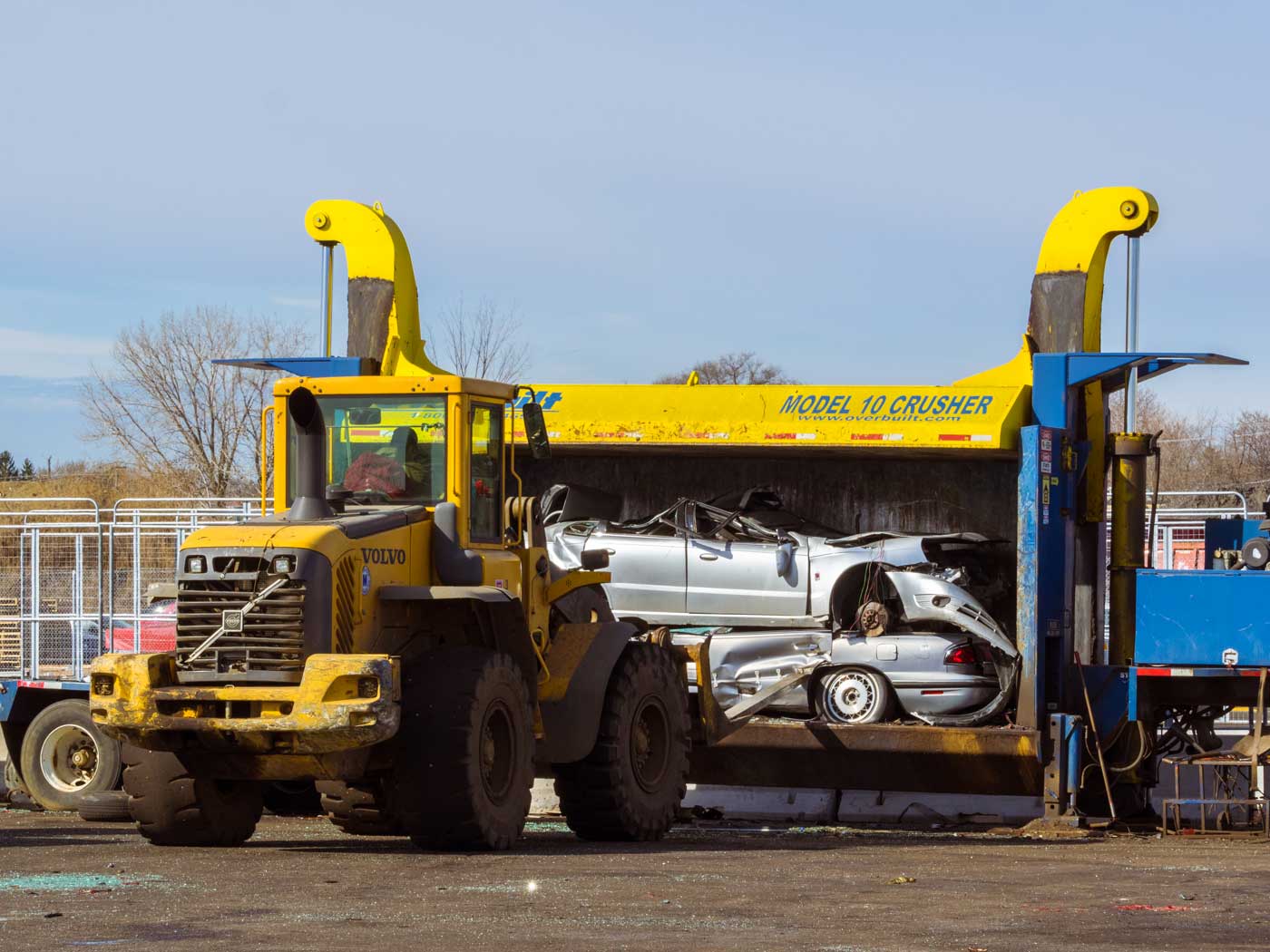
Kyle keeps an eye on oil prices, which correlate with steel prices and affect how much his business makes from selling scrap. He also tracks economic news like developments in Chinese steel consumption and Turkish metal imports.
“You wouldn’t think that someone on a local level in a small industrial town would follow that—and maybe I’m overly cautious or I’m overanalyzing it—but I do follow that stuff,” Kyle says.
When he was younger, he never saw himself working at Victory, much less worrying about the global oil market. Kenneth Weisner, Kyle’s father, was Victory’s third owner, having closed on the business in 1967 on his 25th birthday. Kyle liked spending time with his father and grandfather, who also worked there, but he found the place to be dirty, smelly and loud. The property next door housed a metal-forging and stamping company whose constant pounding would shake the buildings, adding to the cacophony of airplanes taking off at O’Hare.
There were fun childhood memories, too. Kyle collected weapons that had been left behind in cars, filling a box with switchblades, brass knuckles and even a pearl-handled gun from the 1800s. During the summers, he sold cans of soda to customers from an old dentist’s chair to raise money for his Boy Scouts troop. As he got older, Kyle helped out at Victory but had no plans of succeeding his father.
“I never imagined running the place,” Kyle says. “In fact, I didn’t want anything to do with this. I was going to become a self-made man, doing something else. Things change.”
A scrappy business
Things changed when Kyle’s father asked him to fill in at Victory for a summer. Kyle was attending junior college in Southern California, where his parents had a house, and had no plans for the break.
“I figured I’m gonna have a job somewhere, someplace, at some time, working for someone else. Why not work for family?” Kyle recalls. “As it turns out, it was really great. I got to come to work in jeans and a T-shirt, and at the time I had long hair and a couple earrings. It fell well with the environment.”
The summer gig turned into full-time employment, and Kyle enjoyed the work as he learned more about the business. His parents also owned a 1,100-acre alpaca farm in Mora, New Mexico, called Victory Ranch, but Kyle preferred breaking down vehicles to mending fences. He stuck with auto salvage. (Today, his mother, sister and brother-in-law run the alpaca farm.)
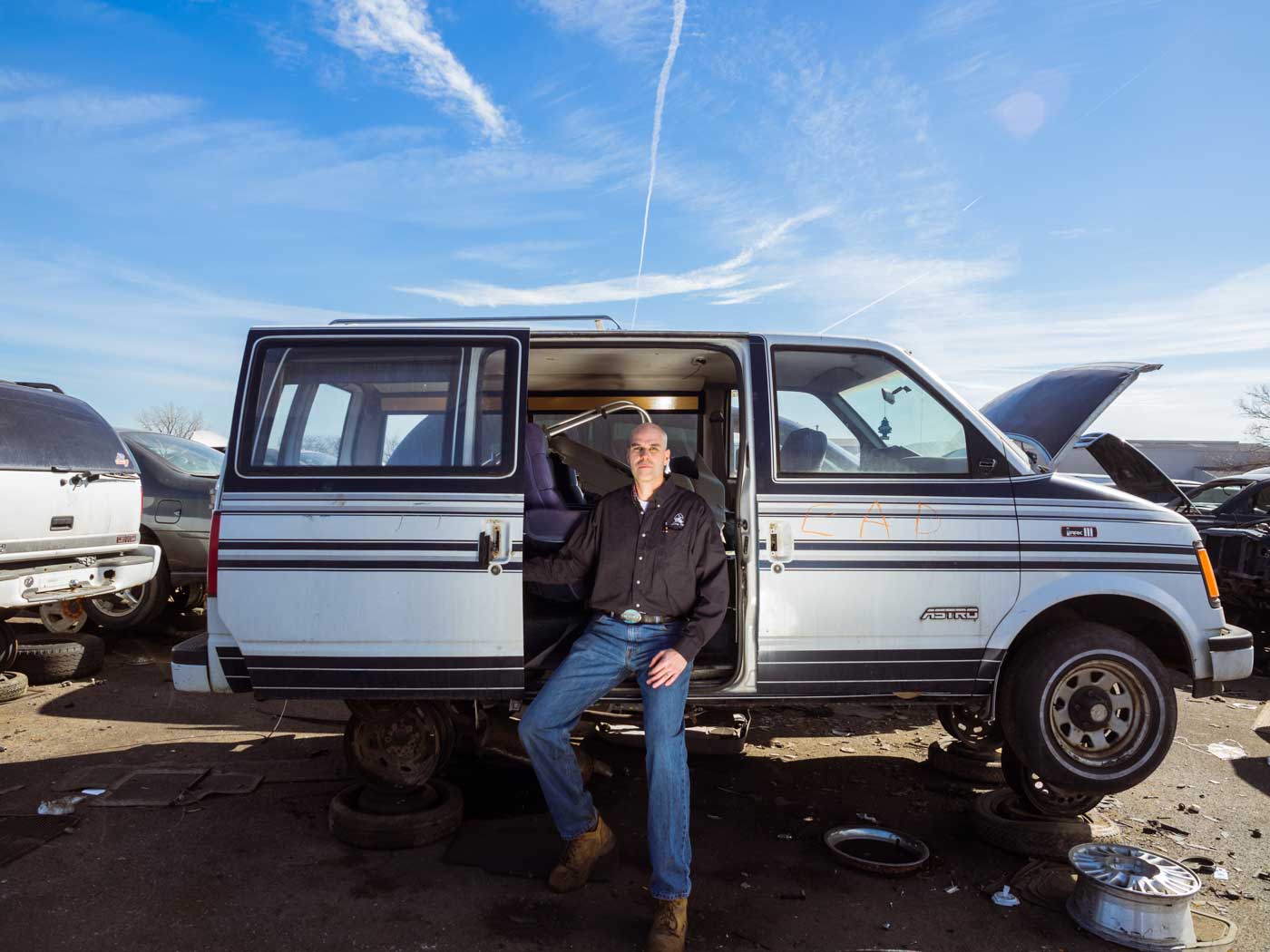
Kyle gradually took on more responsibility over the years, but the big shift came after his father flew from California to Chicago on a red-eye to abruptly fire a manager for stealing.
“I picked him up, and he confronted the manager and fired him, turned to me and said, ‘You’re it,’” Kyle recalls. “He stayed with me for about three or four days, and then he left. I was now in charge having no knowledge of any of the behind-the-scenes stuff, and I think the following week I got audited by the secretary of state. They came in and wanted to see all my records and everything, and it was trial by fire.”
The following years brought more hardships. In 1999, Kenneth Weisner pled guilty to one count of tax evasion and served a 15-month sentence. At the same time, domestic steel prices were collapsing amid an influx of cheaper foreign steel. Kyle recalls scrap steel was $28 a ton then, compared with $200 a ton today. Then the processor that bought Victory’s scrap filed for bankruptcy.
“They owed us for three or four days of material, which really—now looking back—was nothing,” Kyle says. “It was $10,000 or $15,000—nothing. But at the time, when there was no money coming in, it was everything. We needed that so badly.”
Kyle worked out a payment deal with the scrap processor and the debt was settled in three months. Remembering his father always told him to pay the employees first, Kyle assured his staff no one would be laid off. He stuck to his word both then and during the latest recession.
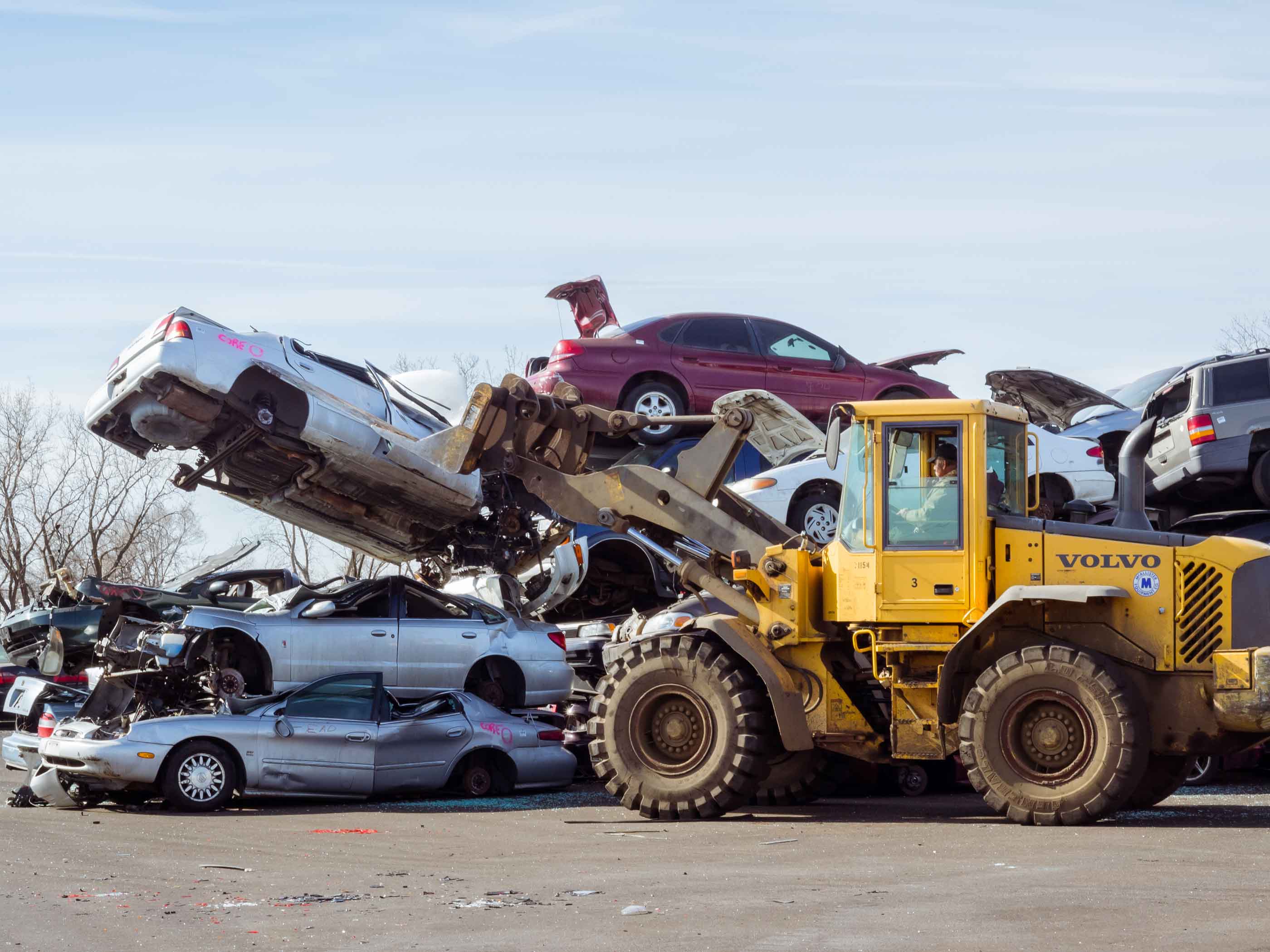
Victory also turned a new leaf with Bensenville officials. In the early 2000s, the village administration passed an ordinance requiring any junkyards, incinerators or wrecking yards to shut down within two years. Victory fought the ruling in court and prevailed, successfully arguing that it was a recycling center, not a wrecking yard. Today, it has a good relationship with the village leadership.
“There’s always a way to figure out how to maneuver through difficult times with communication and with relationships,” Kyle says.
Victory has enjoyed a long friendship with Ron Patris, the WGN employee who directed the classic commercial and came up with the idea to have the car door fall off. Patris still sells advertising at WGN and is Victory’s account representative at the station.
“He was a wonderful man, Kenny Weisner,” Patris says. “It was always good to see a local advertiser that was successful based on the results of a TV commercial that I had something to do with. I never expected that it would continue to air for as many years as it has.”
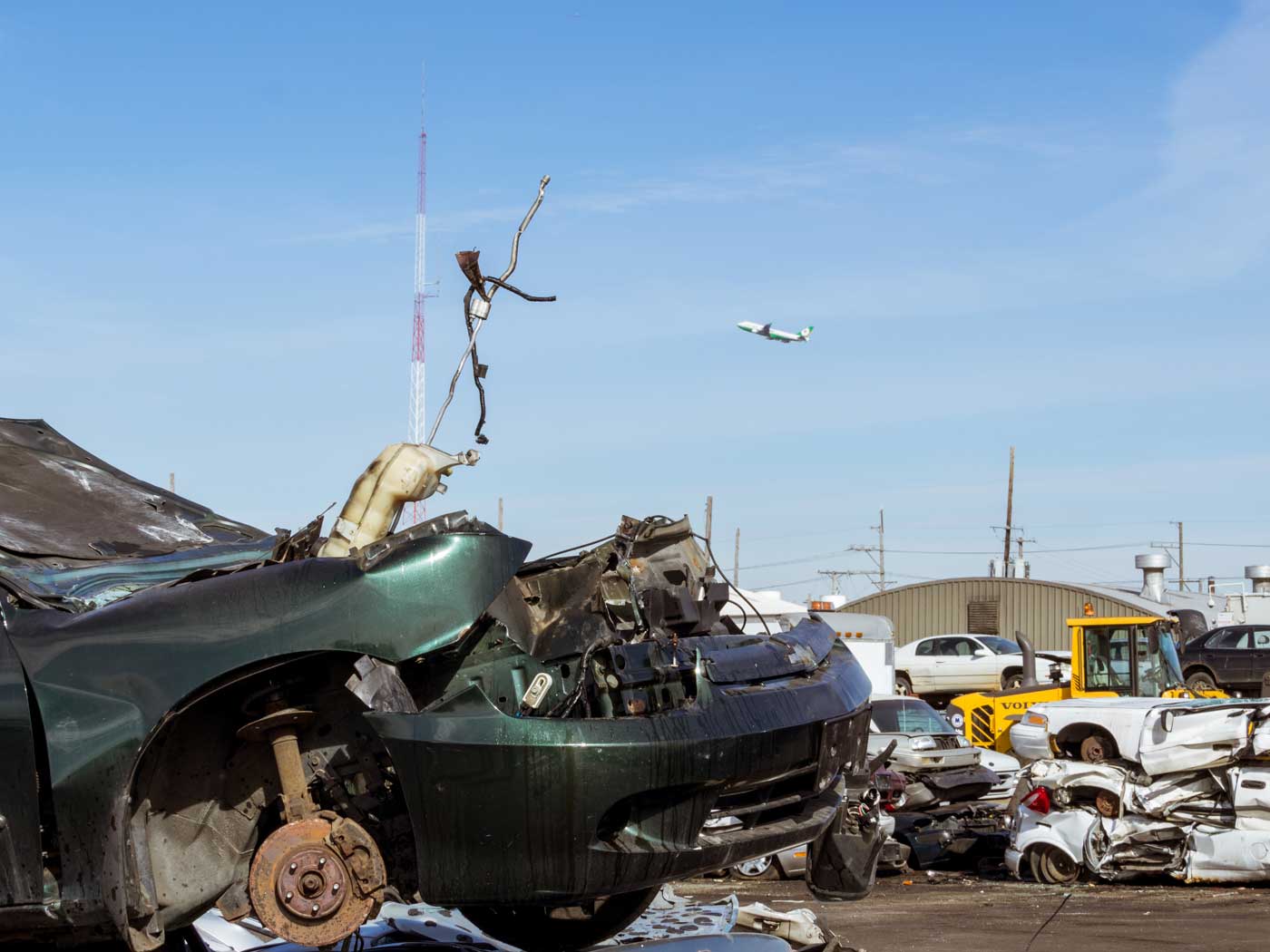
At some point next month, the door will fall off that old car one last time—on old-fashioned airwaves, at least. The new commercial will show off Victory’s newly paved grounds, and direct viewers to the company’s website and mobile app. But the fundamental nature of what Victory does—taking away unwanted cars, removing their parts and crushing them—is something that can’t be digitized.
“It’s not a sexy business,” Kyle says. “And what we’ve been finding over the years…is that as the older generation either wants to retire or dies off, the younger generation does not want to get into it. More and more yards are being sold.…When I got involved in the business 25 years ago, there were something like 20,000 automotive-recycling yards or junkyards in the United States. And now that number is closer to 8,000. [But] it’s a great business. If any of you guys are listening, it’s a great business. Don’t go into the technology field. Believe me, you’ll like this business.”

